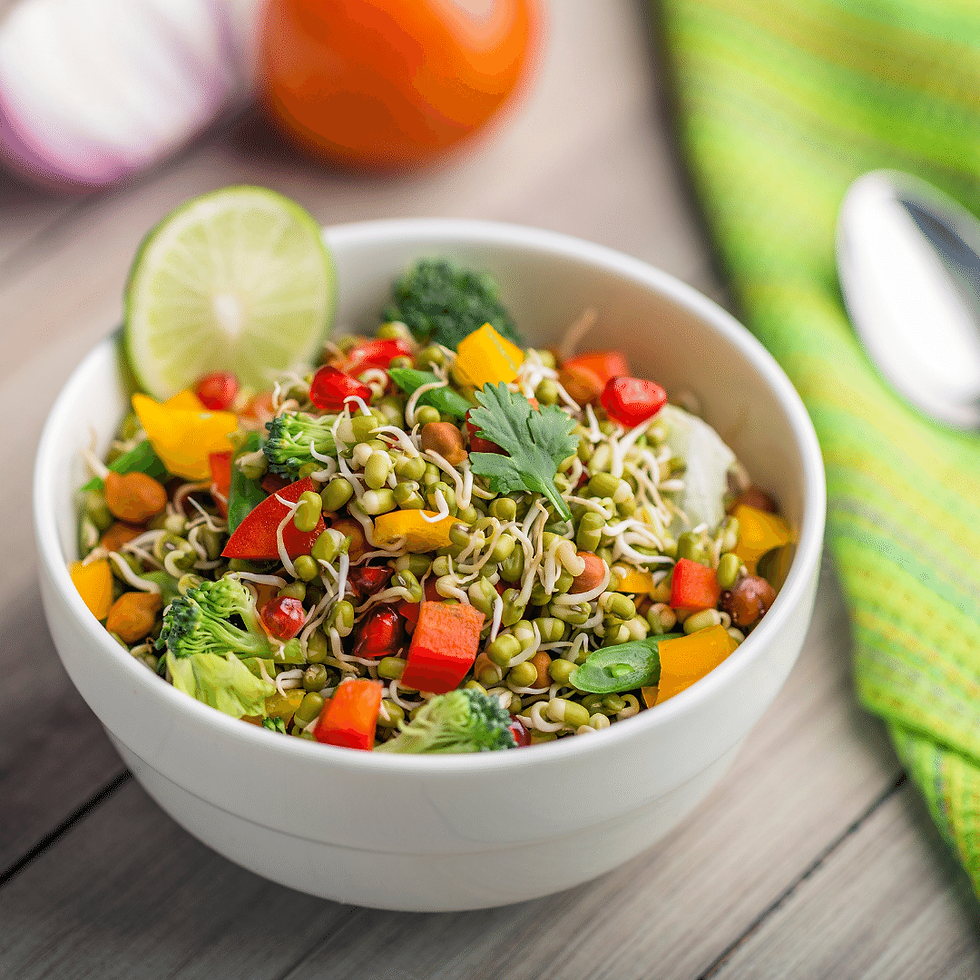Which Sprouts Are Rich in Protein?
- Ravindra G
- Oct 30, 2022
- 2 min read
Updated: Nov 24, 2022
Protein is a vital nutrient in our diet, and adding enough of it can help us achieve our fitness goals. Most people get their protein from meat and poultry, but you can also get protein from sprouts. While this vegetarian source of protein is not widely known, it has a high protein content and is a good choice for those on a diet or trying to lose weight. However, many people have misconceptions about sprouts and don't know how to eat them.
Sprouts contain high levels of fiber, which helps your body digest foods more efficiently. In addition, they are very low in calories. A 100-gram serving of sprouts only has 30 calories, which is less than half the amount found in a single serving of meat. The resulting low-calorie intake helps you lose weight and reduce your waist and hip circumference, making them an excellent choice for vegetarians.
Sprouts are rich in several vitamins and minerals, including folate. They also contain significant amounts of magnesium, potassium, and phosphorus. Many sprouts are also high in antioxidants. Sprouts contain lutein, zeaxanthin, and sulforaphane, which help to prevent premature aging. They can also be a good source of iron.
Sprouts are high in vitamin K, a nutrient that is essential to bone growth and proper blood clotting. Furthermore, sprouts contain a variety of enzymes that aid digestion. This makes them a healthy choice for people who suffer from constipation. Another advantage of sprouts is that they are high in fiber. The high fiber content helps you feel full without a large number of calories.
You can grow sprouts at home or buy them from health stores. They can be added to salads, soups, and vegetarian wraps. They can also be mixed in with batter to make omelets and curries. They add a nutritious punch to your meals. The only downside to sprouts is that they are not completely digestible. Always wash your sprouts under running water and keep them refrigerated at 40 degrees Fahrenheit.
Bean sprouts are a great plant-based source of protein. They contain about two grams of protein per serving and contain trace amounts of fat, mostly polyunsaturated. Beans are also a good source of fiber. However, sprouted beans are lower in protein than mature beans. For example, mung bean sprouts contain only 2.7 grams of protein per serving.
Sprouts come in many varieties. Lentil sprouts are one of the best sources of plant-based protein and contain up to nine grams per 100 grams. This is because sprouting processes enhance the amino acid profile of grains, which is beneficial for improving your health. A study in the European Journal of Obesity showed that people who consumed high-protein diets reduced their chances of obesity and improved overall health.


Bình luận